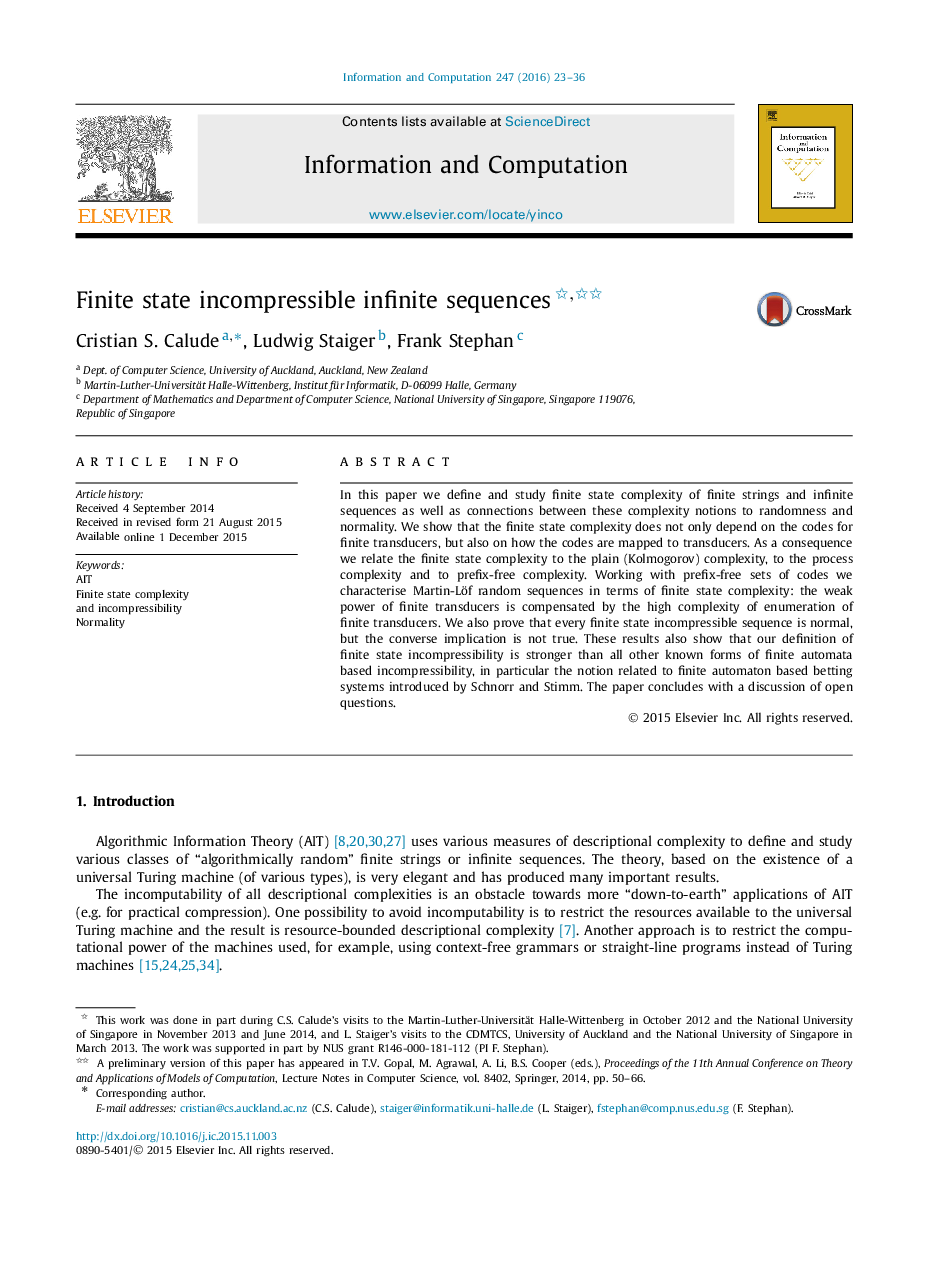| کد مقاله | کد نشریه | سال انتشار | مقاله انگلیسی | نسخه تمام متن |
|---|---|---|---|---|
| 426720 | 686250 | 2016 | 14 صفحه PDF | دانلود رایگان |
In this paper we define and study finite state complexity of finite strings and infinite sequences as well as connections between these complexity notions to randomness and normality. We show that the finite state complexity does not only depend on the codes for finite transducers, but also on how the codes are mapped to transducers. As a consequence we relate the finite state complexity to the plain (Kolmogorov) complexity, to the process complexity and to prefix-free complexity. Working with prefix-free sets of codes we characterise Martin-Löf random sequences in terms of finite state complexity: the weak power of finite transducers is compensated by the high complexity of enumeration of finite transducers. We also prove that every finite state incompressible sequence is normal, but the converse implication is not true. These results also show that our definition of finite state incompressibility is stronger than all other known forms of finite automata based incompressibility, in particular the notion related to finite automaton based betting systems introduced by Schnorr and Stimm. The paper concludes with a discussion of open questions.
Journal: Information and Computation - Volume 247, April 2016, Pages 23–36
